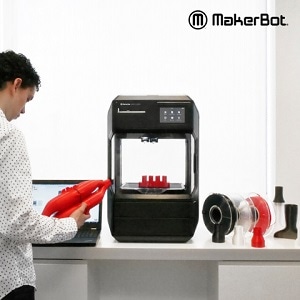MakerBot expands its materials offering with polyethylene terephthalate glycol, better known as PETG. PETG is the first Specialty Material to be released for the MakerBot METHOD 3D Printer. METHOD Specialty Materials are designed to provide advanced material properties for engineers who demand even higher performance.

Advanced Properties and Versatility with PETG
“PETG is the first in a new line of materials for METHOD. Our customers have been asking for different materials to use for a wide range of applications that require high strength and durability,” said Nadav Goshen, CEO, MakerBot. “PETG is one of the most widely used polymers today. Because of its advanced properties and versatility, we view PETG as an excellent material to be used on the manufacturing line and for short-run production runs.”
Engineers and designers use 3D printable parts made of PETG with speed and agility that can withstand industrial applications, including functional prototypes, jigs and fixtures, and end-use parts.
Strong Layer Adhesion Designed to Reduce Shrinkage
This industrial-grade material has a heat deflection temperature of up to 70°C and strong layer adhesion designed to reduce shrinkage and warping during printing. PETG is resistant to moisture and many chemicals, including some alkali and acidic substances. It can be used with METHOD’s water-soluble PVA for complex parts and effortless support removal.
PETG has greater strength and flexibility qualities than other materials, such as PLA and ABS, and is odorless when printing. Further, the material prints with a glossy finish and has a good degree of ductility.
METHOD Specialty Materials are intended for users looking for advanced material properties. They provide basic print performance and can require additional workflow steps to print successfully. PETG requires the application of an adhesion stick to the build plate prior to printing.
Precision Materials with Highest Reliability and Accurate Parts
MakerBot also has a line of Precision Materials that are the primary materials developed for METHOD and cover the majority of use cases for prototyping, jigs and fixtures, and end-use parts. These materials have been extensively tested by MakerBot for the highest reliability and measurably accurate parts. These materials currently include MakerBot Tough, MakerBot PLA, and MakerBot PVA.
MakerBot is showcasing PETG at RAPID + TCT 2019 in Detroit, MI, May 21-23, 2019. Visit MakerBot at Booth 317 in Hall D at Cobo Center.